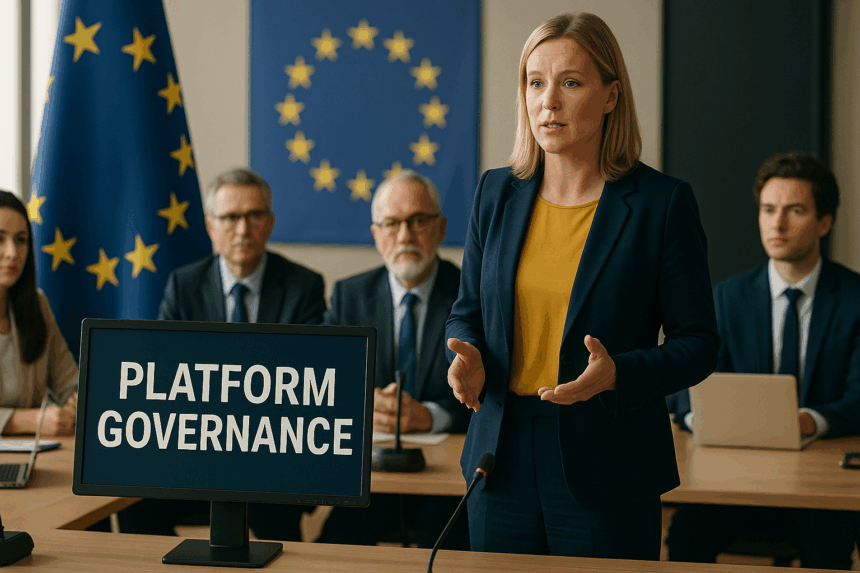The European Union isn’t done with Big Tech. Denmark, now leading meetings of EU ministers, is pressing for tighter regulations on online platforms — with children’s digital well-being at the forefront. At the core of this renewed push is the Digital Services Act (DSA), the EU’s flagship legislation aimed at curbing illegal content and protecting users across various platforms. But Denmark says enforcement must go further, especially to protect minors from addictive design and harmful content.
What’s Happening & Why This Matters
EU Ministers Want Bigger Digital Leashes
Caroline Stage Olsen, Denmark’s digital minister, didn’t mince words. “We will use the presidency to put this on top of the agenda,” she said during her appearance before the Internal Market and Consumer Protection (IMCO) committee. Olsen wants to mandate age verification tools and spearhead a Digital Fairness Act that would strengthen legal protections across Europe. Her plan also includes a joint declaration on minor protection at the informal telecom ministers meeting in October, followed by a deeper workshop in Brussels to solidify plans with the European Commission.
These actions respond to ongoing EU investigations, including those against Meta over algorithms that allegedly encourage addiction in younger users. Olsen’s strategy adds political heat — and legal momentum — to the Commission’s existing work on online safety.
X in the Crosshairs Again

While Denmark builds coalitions, the EU is also investigating platforms accused of abusing personal data. This month, Elon Musk’s X (formerly Twitter) got slapped with a formal DSA complaint over targeted advertising using sensitive personal data like religion, political beliefs, and sexual orientation.
The complaint didn’t come from regulators but from nine powerful civil society organizations, including European Digital Rights (EDRi) and AI Forensics. These groups allege that X’s Ad Repository revealed campaigns from major brands that exclude users based on deeply personal characteristics. One ad, they say, even blocked users engaging with suicide and antidepressant-related keywords — a disturbing use of algorithmic targeting.
Under the DSA, these practices are illegal. Platforms can’t micro-target users based on protected personal attributes. Yet, the data shows X allegedly allowed Total Energies to exclude users who had engaged with “ecologist political figures.” At the same time, McDonald’s could filter out those aligned with its trade union or mental health topics.
The Commission began formally investigating X in December 2023, following earlier findings that blue checkmarks were deceptive. That investigation remains open.
Amazon May Face More Scrutiny

Amazon isn’t out of the woods either. Some lawmakers now want another hearing with the tech giant this autumn. There’s pressure on Amazon to clarify its responsibilities under the DSA, especially concerning how it polices illegal products, counterfeits, and platform manipulation.
Last year, Amazon pushed back hard against its DSA obligations, even challenging its designation as a Very Large Online Platform (VLOP). Though the General Court of the EU eventually dismissed its appeal, the episode raised flags across Parliament. Lawmakers say Amazon’s current transparency reports aren’t enough. They want more information about how Amazon handles enforcement, moderation, and safety — particularly for European consumers.
TF Summary: What’s Next
Denmark’s leadership in the EU presidency brings child safety and platform accountability back into focus. With the Digital Fairness Act on the table, regulators could make age verification and algorithmic responsibility standards across Europe. The pressure on X and Amazon only intensifies the debate. If the European Commission acts on the complaints, platforms face serious legal and financial fallout.
Whether it’s by joint declarations or formal complaints, one thing is clear — the EU wants more than promises. It wants power over platforms that reach (and make) billions.
— Text-to-Speech (TTS) provided by gspeech


